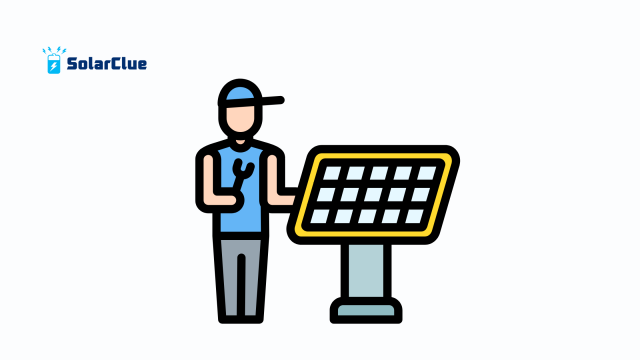Is Installing Solar Panels Worth It for Homes & Businesses?
Installing solar panels has become more than just a trend—it’s a shift toward energy independence and sustainability. With rising electricity bills and increased awareness about renewable energy, many homeowners and business owners are now asking the same question: Is it really worth installing solar panels for your home or business? This blog will help you decide by exploring the real benefits, costs, ROI, and long-term value of solar panel installation.
Table of Contents
- 1 Understanding the Basics of Solar Panel Systems
- 2 Major Benefits of Installing Solar Panels
- 3 Solar Panels for Business: Is It Worth It?
- 4 Choosing the Best Solar Panel for Maximum Output
- 5 What to Expect from Solar Panel Installation?
- 6 Challenges to Consider (And Solutions)
- 7 Who Should Install Solar Panels?
- 8 Future of Solar Energy in India
- 9 FAQs
Understanding the Basics of Solar Panel Systems
Before diving into the advantages, it’s important to understand what a solar panel system consists of. A typical system includes:
-
Photovoltaic (PV) panels that convert sunlight into electricity
-
Inverters that convert DC into usable AC power
-
Mounting structures for rooftops or ground setups
-
Battery storage (optional) for energy backup
-
Monitoring systems to track performance
These systems can be customized for residential solar panel for home use or commercial solar panel systems based on energy needs and budget.
Major Benefits of Installing Solar Panels
1. Drastic Reduction in Electricity Bills
One of the most attractive solar panel benefits is reduced electricity bills. Whether you install solar panels for your home or for your office space, the sun’s energy is free. A properly sized system can meet a major portion—if not all—of your energy needs. Over the years, this translates to substantial savings.
2. High Return on Investment (ROI)
While there is an upfront cost involved in solar panel installation, it’s important to look at it as a long-term investment. On average, homeowners see a payback period of 5–7 years, after which the savings are pure profit. Businesses, which often consume more electricity, can benefit even sooner with tax rebates and depreciation benefits.
3. Increase in Property Value
Homes equipped with solar panel systems tend to sell faster and at a higher price. Buyers are increasingly looking for sustainable and cost-saving features, making solar panels for home a great value addition to your property.
4. Environmentally Friendly Choice
Solar energy is a clean, green, and renewable resource. By reducing reliance on fossil fuels, you significantly cut down your carbon footprint. Installing the best solar panel systems contributes to fighting climate change and promotes environmental sustainability.
5. Government Incentives and Subsidies
In India, both central and state governments offer attractive subsidies for residential solar installations under schemes like the MNRE rooftop program. This makes it more affordable for homeowners to adopt solar panel systems without a financial burden.
Solar Panels for Business: Is It Worth It?
For businesses, the stakes are even higher—both in terms of energy consumption and the opportunity to reduce overhead costs.
-
Energy cost control: Businesses often deal with fluctuating power costs. Solar panel installation locks in energy prices.
-
Corporate social responsibility (CSR): Going solar enhances your brand image and shows commitment to sustainability.
-
Tax benefits: Under Section 32 of the Income Tax Act, businesses can claim accelerated depreciation on solar assets, making it financially appealing.
Whether you own a factory, retail shop, school, or office space, going solar can turn a monthly expense into a long-term asset.
Choosing the Best Solar Panel for Maximum Output
When considering a solar setup, it’s vital to choose high-quality panels that suit your location and consumption pattern. Some tips include:
-
Opt for Tier-1 certified panels from trusted brands
-
Compare efficiency ratings (higher efficiency = more power in less space)
-
Consider temperature coefficient (lower is better for hot climates)
-
Check warranties (ideally 25 years for performance)
A professional installer can help assess your energy usage and recommend the best solar panel setup for your specific needs.

What to Expect from Solar Panel Installation?
Installing a solar panel system involves:
-
Site Inspection – A technician will evaluate your roof or ground space.
-
System Design – Customized based on your power needs and space.
-
Approval and Subsidy Process – For homes, this includes net metering and government incentives.
-
Installation – Typically takes 1–3 days depending on the system size.
-
Commissioning and Monitoring – Once active, your solar system starts saving from day one!
Challenges to Consider (And Solutions)
-
Initial Cost: Though prices have fallen, the upfront cost can still be high. Solution: Go for EMI-based financing or government subsidy.
-
Roof Suitability: Shaded or weak roofs may pose problems. Solution: Structural adjustments or ground-mounted systems.
-
Maintenance: Solar panels require minimal maintenance, but periodic cleaning is essential. Solution: AMC services are easily available today.
Who Should Install Solar Panels?
Solar panels for home are ideal if:
-
You own your home
-
You have a south-facing or unobstructed roof
-
Your electricity bills are above ₹1,500/month
-
You plan to stay in the same home for 5+ years
Businesses should invest if:
-
You operate during the day (to maximize solar usage)
-
You have high power consumption
-
You aim to reduce operational costs and show CSR alignment
Future of Solar Energy in India
India’s goal of reaching 500 GW of renewable energy by 2030 includes a strong focus on solar panel adoption. With innovations like solar rooftops, solar street lighting, and solar battery storage, the future looks bright. The decreasing cost of solar technology and strong government backing mean that there has never been a better time to switch to solar.
FAQs
Q1. Are solar panels really worth the investment in India?
Yes, with high sunlight availability, government subsidies, and rising electricity costs, solar panels are a smart long-term investment.
Q2. How long do solar panels last?
Most best solar panels have a lifespan of 25–30 years with minimal degradation in performance.
Q3. Do I need batteries for my solar system?
Not always. If you opt for a grid-tied system with net metering, you may not need a battery. But if you want backup during power cuts, battery storage is useful.
Q4. How much space do I need for a 1kW solar system?
Approximately 80–100 sq. ft. of shadow-free space is needed for a 1kW system.
Q5. What’s the maintenance required?
Cleaning the panels once a month and periodic system check-ups are sufficient for optimal performance.
So, is it worth installing solar panels for your home or business? Absolutely yes—if you’re looking for long-term savings, sustainable energy, and independence from rising utility bills. Whether it’s a small rooftop system or a commercial-scale installation, going solar is a decision that pays you back in more ways than one.
Ready to make the switch? Let’s make your roof your power source—visit solarclue.com or explore insights on blog.solarclue.com to get started today with expert guidance and top solar solutions tailored just for you!



